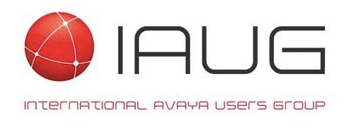Simplifying communications, improving the user experience, and creating excitement about change are top priorities for leading enterprise IT professionals. “We need to do more with less,” said Harald Schirmer, manager digital transformation and change, Continental AG, an automotive company based in Germany. “Our strategy is moving more operations to the cloud to meet our business needs.”
Schirmer was one the panelists who discussed trends in unified communications and collaboration (UCC) at an at Enterprise Connect 2019 session, “Planning for a Future of Constant Change.”

Robin Gareiss, president, Nemertes Research, was a moderator at the session, which included panelists Dan Metzger, UC and collaboration manager, Condé Nast; Monica Gionet, director of UC, Hertz; Kari Mattek, senior director product management, Northwestern Mutual; Carlos Cong, senior manager, enterprise technology services, Paychex; and Casey Abell, corporate engineer IV, Waste Management.
Abell said Waste Management plans to add more video to help support its drivers, troubleshoot its trucks and save time in bringing out parts. At Paychex, Cong said UC will involve presenting more real-time information to agents and adding analytics.
To kick off the discussion, Gareiss asked the panelists, “What changes do you plan to make to your UC strategy over the next few years, such as integrating AI and analytics?
Abell said Waste Management plans to add more video to help support its drivers, troubleshoot its trucks and save time in bringing out parts. At Paychex, Cong said UC will involve presenting more real-time information to agents and adding analytics.
“We are going through digital transformation,” said Mattek of Northwestern Mutual. “We have the customers, sales, and service, and we need to integrate those different worlds. That means supporting collaboration and making it easy for people to get information from other people.”
Along with helping to break down silos, UCC applications are crucial for supporting customers, added Mattek. “People expect a certain level of service, and if you don’t have the digital applications, your brand can quickly lose relevance.”
At Hertz, keeping remote locations connected is a challenge, said Gionet. “We are working on moving voice to cloud and are about a third of the way through that transformation. Then we plan to bring our workforce to a Webex platform for conferencing. But not all our 9,000 locations will move to the cloud. Some parts of the business use technology differently.”
Gionet also emphasized the importance of working with business units. “You might be a technical expert, but your business partners are on the front lines with users and can support you and give you feedback on what they learn,” she said.
Metzger said Condé Nast also is moving telephony, video and chat to the cloud. “The collaboration piece is changing the culture of our company, and AI is a big piece of that,” he added. “Moving to the cloud also gets us out of the business of upgrades.”
Metzger and Cong both emphasized the importance of “marketing” new UCC tools to employees, taking away the fear factor and getting them excited about change.
Schirmer said Continental AG has introduced enterprise social networking, followed by videoconferencing and new digital tools. “We want to change our communication methods to meet today’s dynamic environment,” he said.
As for the pace of change, Schirmer said his team migrated people gradually over seven months. “We took away their email and phone conference systems and gave them a whole new environment,” he said. “We also built a network of change agents, to help local teams adopt to the journey. So far, our success rate is fine, with about 71 percent satisfied and another 20 percent neutral about the changes.”
Summing up the session, Schirmer said, “You want to find change agents in your organization and let them show others what is possible. Curiosity is what drives learning, and learning is the path to change.”

